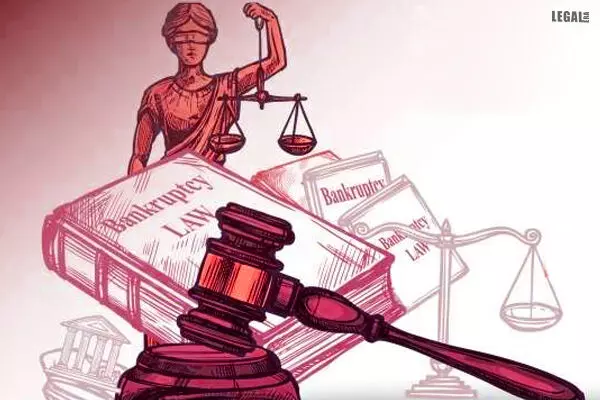- Home
- News
- Articles+
- Aerospace
- Agriculture
- Alternate Dispute Resolution
- Banking and Finance
- Bankruptcy
- Book Review
- Bribery & Corruption
- Commercial Litigation
- Competition Law
- Conference Reports
- Consumer Products
- Contract
- Corporate Governance
- Corporate Law
- Covid-19
- Cryptocurrency
- Cybersecurity
- Data Protection
- Defence
- Digital Economy
- E-commerce
- Employment Law
- Energy and Natural Resources
- Entertainment and Sports Law
- Environmental Law
- FDI
- Food and Beverage
- Health Care
- IBC Diaries
- Insurance Law
- Intellectual Property
- International Law
- Know the Law
- Labour Laws
- Litigation
- Litigation Funding
- Manufacturing
- Mergers & Acquisitions
- NFTs
- Privacy
- Private Equity
- Project Finance
- Real Estate
- Risk and Compliance
- Technology Media and Telecom
- Tributes
- Zoom In
- Take On Board
- In Focus
- Law & Policy and Regulation
- IP & Tech Era
- Viewpoint
- Arbitration & Mediation
- Tax
- Student Corner
- AI
- ESG
- Gaming
- Inclusion & Diversity
- Law Firms
- In-House
- Rankings
- E-Magazine
- Legal Era TV
- Events
- News
- Articles
- Aerospace
- Agriculture
- Alternate Dispute Resolution
- Banking and Finance
- Bankruptcy
- Book Review
- Bribery & Corruption
- Commercial Litigation
- Competition Law
- Conference Reports
- Consumer Products
- Contract
- Corporate Governance
- Corporate Law
- Covid-19
- Cryptocurrency
- Cybersecurity
- Data Protection
- Defence
- Digital Economy
- E-commerce
- Employment Law
- Energy and Natural Resources
- Entertainment and Sports Law
- Environmental Law
- FDI
- Food and Beverage
- Health Care
- IBC Diaries
- Insurance Law
- Intellectual Property
- International Law
- Know the Law
- Labour Laws
- Litigation
- Litigation Funding
- Manufacturing
- Mergers & Acquisitions
- NFTs
- Privacy
- Private Equity
- Project Finance
- Real Estate
- Risk and Compliance
- Technology Media and Telecom
- Tributes
- Zoom In
- Take On Board
- In Focus
- Law & Policy and Regulation
- IP & Tech Era
- Viewpoint
- Arbitration & Mediation
- Tax
- Student Corner
- AI
- ESG
- Gaming
- Inclusion & Diversity
- Law Firms
- In-House
- Rankings
- E-Magazine
- Legal Era TV
- Events
Delhi High Court sends notice to the Central government

Delhi High Court sends notice to the Central government
An MSME had filed a petition claiming a Section of IBC violated Article 14 of the Indian Constitution
The Delhi High Court has issued notices to the Government of India, the Reserve Bank of India (RBI), the Insolvency and Bankruptcy Code (IBC) Board and the Committee of Creditors (CoC), on a petition challenging the constitutional validity of IBC.
The petition was filed by the suspended directors of a Micro, Small and Medium Enterprise (MSME), Emkay Automobile Industries Limited, against whom the Corporate Insolvency Resolution Process (CIRP) proceedings were initiated by the National Company Law Tribunal (NCLT) last year.
The division bench of Justice Manmohan and Justice Navin Chawla sought response from the Central government, the RBI, the IBC Board and the CoC. The provision under IBC provides for the initiation of the insolvency resolution process after application by a creditor or a group of creditors.
The petition argued that IBC specifically permitted the guarantor of an MSME to propose a resolution plan (RP). However, the same was barred under another Section of IBC.
The plea stated that the Section violated Article 14 of the Constitution of India for failing to recognize the personal guarantors of an MSME Corporate Debtor as a separate class. It treated them at par with personal guarantors of a non-MSME, especially in view of the right created in favor of such personal guarantors under the Sections of the IBC.
"It is submitted that under Section 240A(l) read with the Section 29A(h) of the IBC, 2016, the personal guarantor of an MSME, Corporate Debtor has been granted a right by way of an exception carved under these Sections whereby such a personal guarantor can propose an RP for the insolvency resolution of the Corporate Debtor as a going concern," the petitioner argued.
The plea said that once the insolvency resolution process was initiated against the petitioners under the IBC, they would not be allowed to deal with their assets on account of the moratorium imposed. Thus, they would be unable to provide the funds for the insolvency resolution, preventing the petitioners from filing an RP to revive the Corporate Debtor.
The petitioners, therefore, sought a declaration holding the Section of the IBC to be violative of the Indian Constitution. They implored provisions under the IBC by giving relaxation to a personal guarantor of MSME undergoing CIRP to propose a RP.
The plea also sought a stay on further proceedings before the NCLT.



